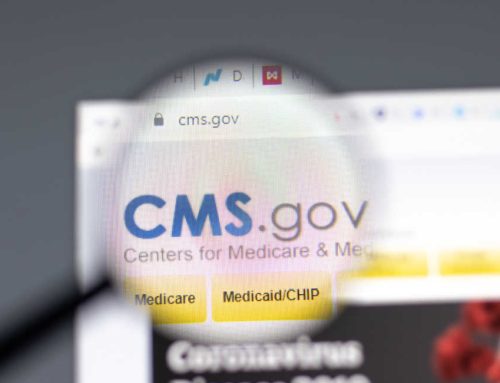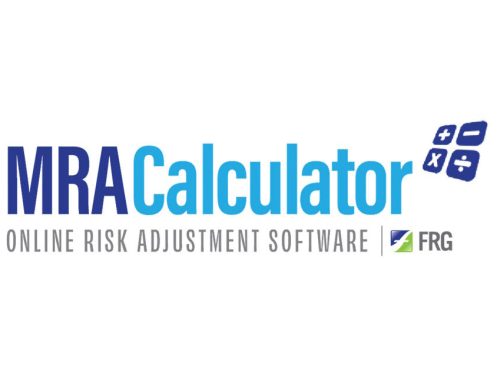The Office of Inspector General (OIG) recently updated their Work Plan to include nationwide audits of Medicare Part C high-risk diagnosis codes. OIG Work Plan updates are nothing new, but the OIG’s focus on high-risk diagnosis codes puts even more pressure on medical coders to accurately capture patient conditions.
As most of the agency’s resources fund the oversight of Medicare and Medicaid, the OIG consistently targets healthcare waste and fraud. Their Medicare and Medicaid oversight includes Medicare Parts A, B, and C, as well as prescription drugs (part D) and Medicaid. To keep watch over Medicare and Medicaid fraud, the OIG reviews medical coding records and runs reports with special attention towards code accuracy.
This kind of retrospective review of coding records is important, as Medicare fraud has cost American tax payors billions of dollars. The Department of Justice (DOJ) collected approximately $2.2 billion in False Claims Act settlements and judgments that occurred in FY 2022 alone.
In this article, we will take a closer look at OIG Work Plans, OIG’s recent Work Plan update, and why this update should matter to Medical Coders.
Plan, Audit, Report
The OIG is an independent oversight authority which was originally established under the Inspector General Act of 1978. The OIG conducts audits, investigations, and reviews to make informed recommendations to the Federal Reserve System (Board) and the Consumer Financial Protection Bureau (CFPB) regarding economic decisions and the prevention of fraud, abuse, and waste. The OIG also sends semiannual reports to Congress detailing their findings and corrective action recommendations.
The OIG Work Plan presents the audits and evaluations they are conducting. Each quarter, the OIG deems projects updated, postponed, canceled, terminated, or suspended. After evaluating the projects in progress, the OIG prioritizes the audit red flags which pose the highest risk to the Board and the CFPB in achieving their objectives.
OIG encourages positive change by first identifying risks, abuses, and deficiencies. Following their audits, they investigate remedies to issues found and outcome options before recommending solutions to address them. The OIG maintains a list of recommendations and keeps track of whether these recommendations have been implemented by CMS.
For instance, in November 2022, the OIG’s investigation of Blue Cross & Blue Shield of Rhode Island (BCBS RI) revealed that most of the selected diagnosis codes that BCBS RI sent to CMS did not comply with Federal requirements. The audit process included interviewing BCBS RI officials about their policies and procedures regarding the submission of diagnosis codes to CMS, contractor medical coding reviews (with up to three reviews of the same medical record by two coders and a physician to determine if the HCC was valid), calculating overpayments or underpayments for each enrollee-year, and discussing the results with BCBS RI officials. According to their audit results, “BCBS RI received at least $4.8 million in net overpayments for 2016 and 2017.” Following their investigation, the OIG recommended that BCBS RI refund an extrapolated amount of what they owed to the federal government.
OIG’s Nationwide Audits of High-Risk Diagnosis Codes
As of June 2023, the OIG announced that they will be conducting nationwide audits like the previous example. These audits are expected to be issued in FY 2024.
According to the OIG’s updated Work Plan announcement, “For these audits, we will focus on enrollees who received diagnoses that are at high risk for being miscoded and resulted in increased risk-adjusted payments from CMS to MA organizations. We will determine whether these diagnosis codes, as submitted by MA organizations to CMS for use in CMS’s risk-adjustment program, complied with Federal requirements.”
The OIG has already studied and reported on several high-risk diagnoses during previous audits, including:
- Acute Stroke
- Acute Heart Attack
- Breast Cancer
- Embolism
- Lung Cancer
- Major Depressive Disorder
- Prostate Cancer
- Vascular and Neurogenic Claudication
While the specific diagnosis codes were not specified in their work plan announcement, it is likely that they will focus on the diagnosis codes above. The OIG will likely also check for miskeyed diagnosis codes, as this is also a common occurrence that causes overpayment.
Looking Ahead
The OIG’s work has been successful so far. According to their FY 2024 budget request, in FY 2022, their audits led to “approximately $2.73 billion in expected investigative recoveries.” HHS also implemented 424 out of the 445 total OIG recommendations. These positive results suggest the government’s intentions to prioritize accurate clinical documentation and enforce coding standards for risk adjustment.
According to the same budget proposal, they will continue oversight of managed care “to promote access to high-quality care for people enrolled in managed care, provide comprehensive financial oversight, combat fraud, and promote data accuracy and data-driven decisions.”
With OIG’s audits in mind, it is important for medical coders to carefully consider their own policies and procedures when coding. To protect the status of Medicare and Medicaid funding in the future, it is also important for both medical coders and healthcare providers to accurately capture patient visits.
For more information about Work Plan updates, check out the Active Work Plan Items page on the OIG website.






Leave A Comment